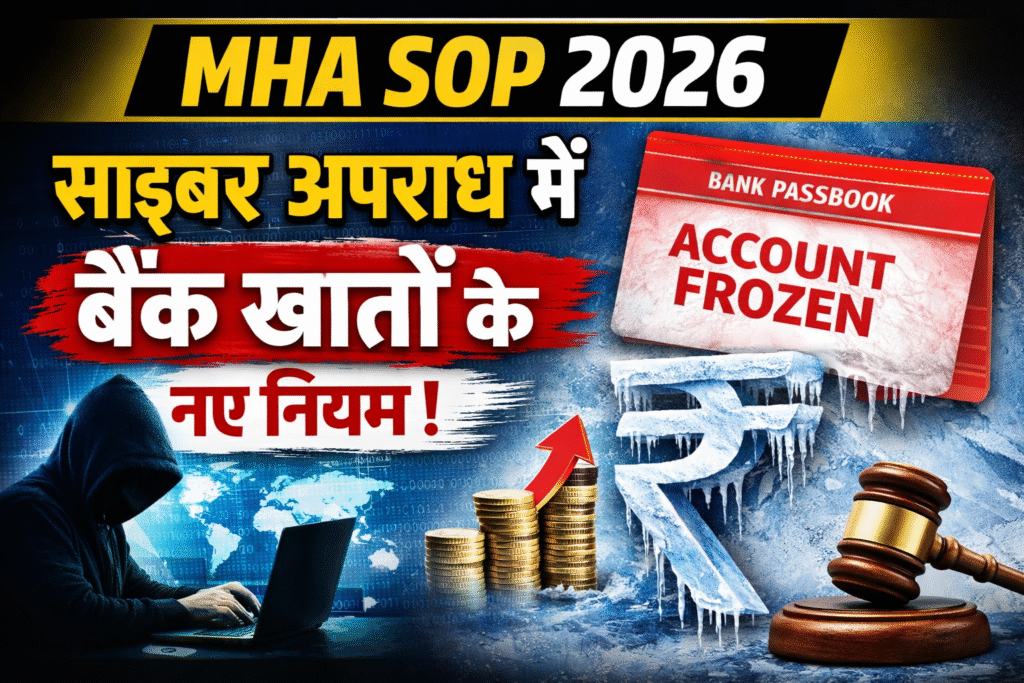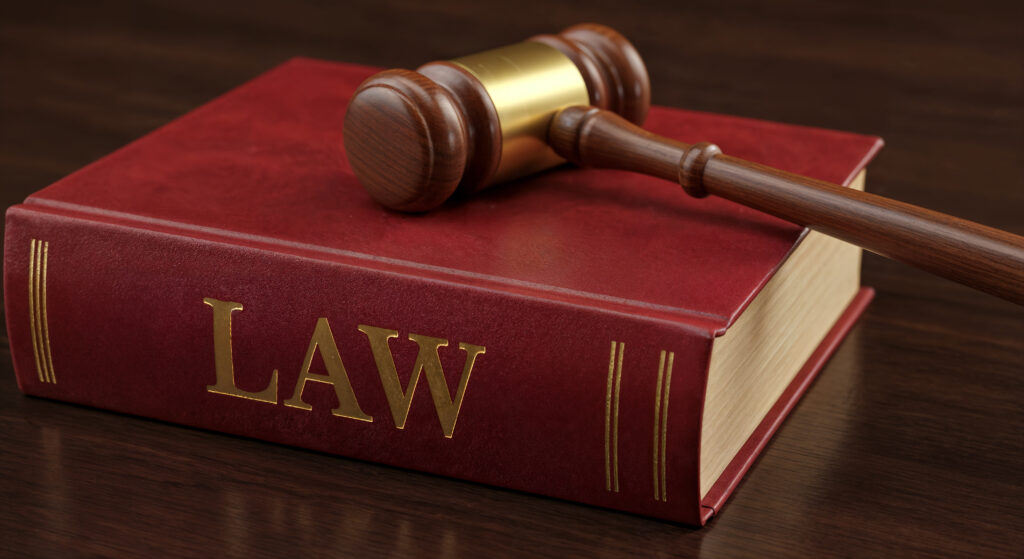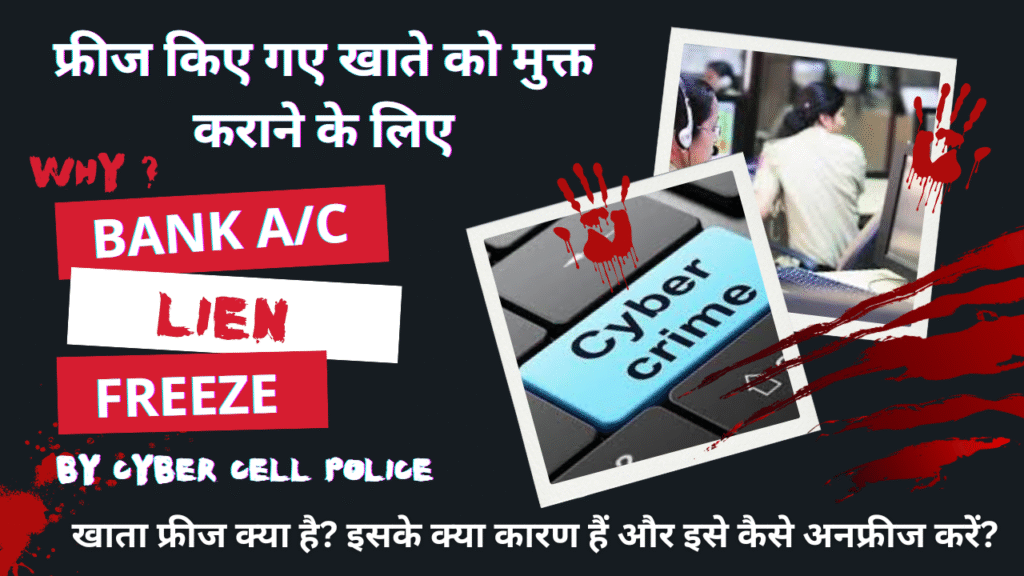What Is the MHA SOP 2026 on Financial Frauds
In recent years, cyber fraud cases in India have increased rapidly, leading to frequent bank account freezes, debit restrictions, and lien markings on innocent account holders. Many people found their accounts frozen without prior notice, even when they were not directly involved in any fraud. To address this serious issue, the Ministry of Home Affairs (MHA), Government of India, introduced a new Standard Operating Procedure (SOP) in 2026 related to bank account freeze in cybercrime cases. This new SOP aims to protect innocent account holders, ensure fair investigation, and bring uniformity and accountability in the process of freezing and unfreezing bank accounts across India. What Is the MHA SOP 2026? The MHA SOP 2026 is a standardized framework that guides: Cyber Crime Cells Investigating Officers (IOs) Banks and Financial Institutions Digital Payment Platforms on how and when a bank account can be frozen or put under lien during cybercrime investigations. The SOP applies to cases reported through the National Cybercrime Reporting Mechanism and related financial crime monitoring systems. MHA SOP 2026 गृह मंत्रालय द्वारा जारी नियमावली है, जो साइबर वित्तीय धोखाधड़ी के मामलों में बैंक, पुलिस और अन्य एजेंसियों की प्रक्रिया को स्पष्ट और तेज बनाने के लिए बनाई गई है। मुख्य बिंदु: साइबर फ्रॉड की शिकायत दर्ज होते ही बैंक को तुरंत कार्रवाई करनी होगी। ₹50,000 तक की धोखाधड़ी में पीड़ित को पैसा वापस करने के लिए कोर्ट ऑर्डर जरूरी नहीं होगा। अनावश्यक रूप से पूरे बैंक खाते को फ्रीज करने से बचने के निर्देश दिए गए हैं। अगर 90 दिनों तक कोई कोर्ट या जांच आदेश नहीं आता है, तो बैंक को फ्रीज या लियन हटाने की प्रक्रिया शुरू करनी होगी। फंड ट्रैकिंग के लिए लेयर सिस्टम (Layer 1, Layer 2, Layer 3) अपनाया जाएगा। शिकायतों के समाधान के लिए समयबद्ध और एक समान प्रक्रिया तय की गई है। उद्देश्य:पीड़ित को जल्दी राहत देना, बेवजह खाते फ्रीज होने से रोकना, और साइबर फ्रॉड मामलों में पारदर्शिता व जवाबदेही बढ़ाना। Why Was a New SOP Required? Before SOP 2026, many problems were observed: Entire bank accounts were frozen for small disputed amounts No prior notice was given to account holders Salary, pension, savings, and business accounts were blocked Innocent recipients of disputed money suffered financial hardship No fixed timeline for review or unfreezing The new SOP was introduced to balance cybercrime control with citizens’ financial rights. Key Objectives of SOP 2026 The SOP 2026 focuses on the following objectives: Prevent arbitrary and blanket bank account freezes Ensure verification before taking coercive action Protect innocent and third-party account holders Enable faster resolution and partial relief Create transparency between banks, police, and citizens Standardize procedures across all states and UTs Types of Bank Restrictions Explained in SOP 2026 1. Account Freeze Complete restriction on debit operations Used only in serious and verified cybercrime cases Cannot be imposed casually or without justification 2. Lien Marking Restriction only on the disputed amount Remaining balance should remain usable Preferred over full account freeze 3. Debit Hold Temporary restriction pending verification Must be reviewed within a fixed time SOP 2026 clearly states that full account freeze should be the last option, not the first step. Mandatory Verification Before Freezing an Account Under SOP 2026: Complaints must be verified for authenticity Transaction trail must be examined Role of account holder must be assessed Innocent receipt of funds must be considered Accounts cannot be frozen solely on suspicion or automated triggers. Partial Freeze and Proportionality Rule One of the most important reforms in SOP 2026 is proportional action: Only the disputed amount should be restricted Salary, savings, or business funds unrelated to fraud must not be blocked Multiple-layer freezing without justification is discouraged This prevents financial paralysis of innocent citizens. Timeline for Review and Resolution SOP 2026 introduces accountability through timelines: Freeze or lien must be reviewed periodically Banks must seek updated instructions from police Investigating officers must justify continuation of restrictions Unnecessary prolonged freezes are not permitted This ensures that account holders are not left helpless indefinitely. Rights of the Account Holder Under SOP 2026 As per the new SOP, an account holder has the right to: Know the reason for account freeze or lien Receive details of the disputed transaction Submit an explanation and supporting documents Request partial relief or lien-only restriction Seek removal if no direct involvement is found This marks a major shift toward citizen-centric cybercrime handling. What If You Received Disputed Money? SOP 2026 recognizes that: Receiving disputed money does not automatically make someone a criminal Many cases involve innocent recipients (job payments, refunds, P2P transfers, business receipts) Intent and knowledge must be evaluated If no fraudulent intent is established, full account freeze should not continue. Role of Banks Under SOP 2026 Banks are required to: Act strictly as per written instructions Avoid blanket debit restrictions Communicate clearly with customers Facilitate representation by account holders Coordinate with cyber police for timely resolution Banks cannot arbitrarily block accounts without procedural compliance. Impact of SOP 2026 on Common Citizens Positive Changes: Reduced misuse of freezing powers Faster relief for innocent account holders Better coordination between agencies Clear documentation and accountability Overall Impact: The SOP restores confidence in the system while maintaining strict action against real cybercriminals. Importance of Legal Awareness Despite SOP 2026, many people remain unaware of their rights. Understanding this SOP helps: Draft proper representations Seek partial relief instead of full freeze Avoid panic and misinformation Protect financial stability Professional guidance is often helpful in navigating SOP-based remedies. The MHA SOP 2026 on bank account freeze is a landmark reform in India’s cybercrime response framework. It ensures that cyber fraud investigations remain effective without violating the financial rights of innocent citizens. By emphasizing verification, proportionality, and transparency, this SOP brings long-needed balance between law enforcement and individual liberty. Account holders are encouraged to remain informed, cooperative, and proactive when dealing with bank freezes, while authorities are expected to act responsibly and fairly under this new framework. Disclaimer This content is purely for educational and informational purposes. It is not a promotion,









